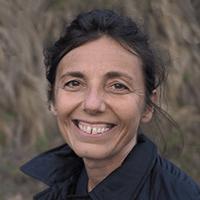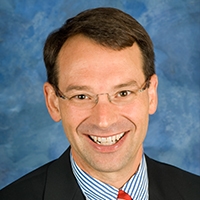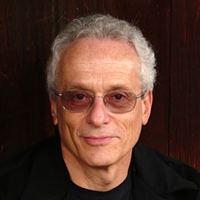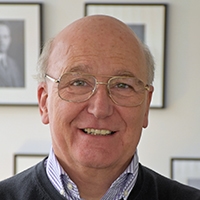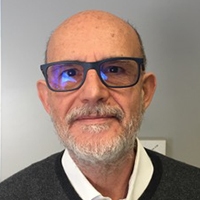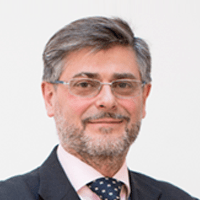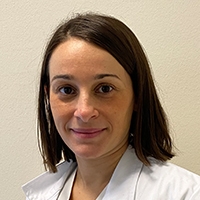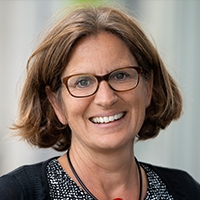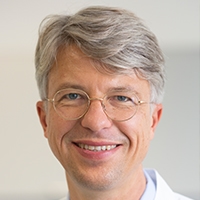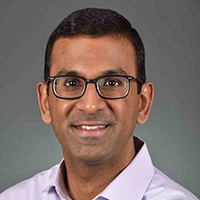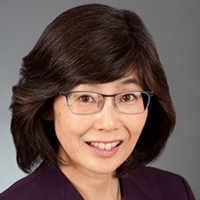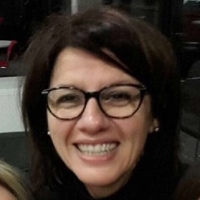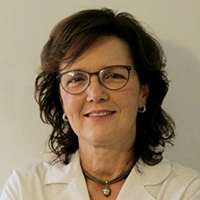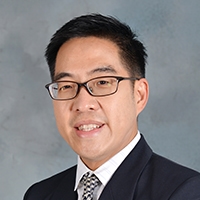Faculty
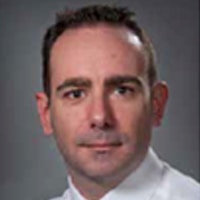
Lionel Blanc
New York, USA
The Feinstein Institutes for Medical Research
Institute of Molecular Medicine
Lionel Blanc
Lionel Blanc received his PhD in Molecular Medicine from the University of Montpellier, France in 2008. He completed his postdoctoral training at the New York Blood Center before joining Northwell’s Department of Pediatric Hematology/Oncology in 2012. Shortly after, he established the Laboratory of Developmental Erythropoiesis and developed a strong interest in cancer predisposition in children with bone marrow failure syndromes such as Diamond Blackfan anemia. In 2014, Dr. Blanc received the Allied World Career Development Award from the St. Baldrick’s Foundation to study osteogenic sarcoma predisposition in children with Diamond Blackfan anemia.
Since then, the laboratory has been funded by the National Institutes of Health. Dr. Blanc’s research interests are focused on identifying targets in erythroid progenitors for the treatment of anemia and the development of models to study skeletal defects and osteosarcoma predisposition in Diamond Blackfan anemia.

Emery Bresnick
Madison, USA
University of Wisconsin School of Medicine and Public Health
Wisconsin Institutes for Medical Research
Emery Bresnick
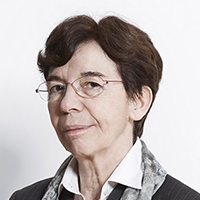
Clara Camaschella
Milan, Italy
Università Vita e Salute
IRCCS Ospedale San Raffaele
Clara Camaschella
Education
CC graduated in Medicine at the University of Torino, Italy in 1973, received her specialization certificate in Internal Medicine from the same University in 1979 and in Hematology from the University of Pavia, Italy in 1982.
Academic appointments
She has been Assistant Professor, then Associate Professor and from 2000 Professor of Internal Medicine at the University of Torino. From October 2004 until September 2017 she was appointed Professor of Internal Medicine at Vita-Salute University Milano and Head of the Research Unit: Regulation of Iron Metabolism at Ospedale San Raffaele, Milano. From 2014 to March 2017 she was Deputy Director of the Division of Genetics and Cell Biology at the same Institute. She retired from her University appointment October 2017 and continued as consultant at San Raffaele Hospital until December 31, 2020.
Research interest
CC research interests are red cell inherited disorders and inherited and acquired iron metabolism disorders. For her research she has received support from several sources including Telethon Foundation, National Ministry of Research, National Research Council and European Community. Her most important results have been the identification of hepcidin mutations in a form of juvenile hemochromatosis, which linked hepcidin with iron metabolism in humans and the identification of the hemojuvelin as the substrate of matriptase 2, which clarified a mechanism of hepcidin inhibition. Her current research is related to further characterize systemic iron homeostasis and the role of iron genes, especially TFR2 in erythropoiesis. She has authored >290 peer-reviewed publications and several review chapters in Educational books, as Goldman-Cecil (Medicine) 2020 ed, Hoffman Hematology: basic principles and practice 8th ed and Postgraduate Hematology 7th and 8th eds. She has contributed the “iron metabolism” and “anemia of inflammation” on the web site of UpToDate.
International membership and awards
CC has been member of the Iron and Heme Committee of the American Society of Hematology (ASH)(2004-2006), served as Committee chair (2005-2006) and has been reappointed as a member of the same Committee for the years 2014-2018. She served as Councilor of the European Hematology Association (EHA) Board from 2007 to 2011.
She is past member of the Editorial Board of the British Journal of Hematology and of BLOOD and past Associate Editor of Haematologica for red cells and iron. She was President of the International BIOIRON (IBIS) Society in 2011-2013.
She has served as a national expert in the evaluation of Italian University research and as an evaluator for several national and international granting agencies.
She received the Marcel Simon award for research from the International BIOIRON Society in 2003 for cloning two hemochromatosis genes.
For her research in Hematology she has been awarded the prestigious “Ham Wasserman lecture” at the ASH Meeting 2013, the Jean Bernard Lifetime Achievement award at the EHA Congress in Copenhagen June 2016 and the Ferrata-Storti lecture from the Italian Society of Hematology in 2017.
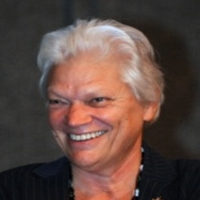
Maria-Domenica Cappellini
Milan, Italy
University of Milan
IRCCS Ca’Granda Foundation Maggiore Policlinico Hospital
Maria-Domenica Cappellini
Department of Clinical Science and Community, University of Milan, Italy
Maria Domenica Cappellini is Professor of Internal Medicine at the University of Milan, Italy, She qualified as an MD in 1974 at the University of Milan.
Professor Cappellini has been active in the fields of thalassaemia, haemoglobinopathies, and the haem biosynthetic pathway for more than 40 years. From 2001 to 2002, she was a fellow at the MRC Molecular Haematology Unit, John Radcliffe Hospital, University of Oxford (Oxford, UK), under the supervision of Professor D.J. Weatherall. She has focused on the phenotypic expression of thalassaemia major and intermedia and evaluated the genotype−phenotype relationship, taking into account the co-inheritance of modifier genes, and also identified the mechanisms underlying the thrombotic risks in thalassaemia intermedia. She studied in vitro molecules capable of inducing fetal haemoglobin with a view to therapeutic application and oxidative stress in thalassaemic erythrocytes, focusing on the role of non-transferrin-bound iron in relation to iron chelation. She contributed to revised the thalassemia clinical classification. She is involved in numerous clinical trials for new therapeutic approachs to thalassemia and Sickle Cell Disease
Professor Cappellini is a member of a number of societies, including the European Hematology Association (EHA), the Italian Society of Hematology (SIE), the American Society of Hematology (ASH), the Italian Society of Internal Medicine (SIMI), and the European Iron Club. She is scientific adviser to the Thalassaemia International Federation (TIF) and contributes to their meetings to establish guidelines for the clinical management of thalassaemia. Professor Cappellini is Past- President of the European Federation of Internal Medicine and is an honorary fellow of the Royal College of Physicians (RCP) and the American College of Physicians (ACP). She was awarded with the Stratton Medal by the American Society of Hematology in 2020. She has published a large number of peer-reviewed original articles, and is a regular contributor and invited speaker at national and international meetings.
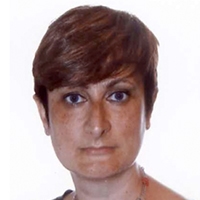
Lucia De Francheschi
Verona, Italy
University of Verona, Policlinico GB Rossi
Lucia De Francheschi
LUCIA De FRANCESCHI. I obtained my Medical Degree cum laude at the University of Verona, Italy in 1991. In the following two years I had an appointment as Research fellow at the Department of Physiology, Harvard Medical School, Boston, MA, USA, which directors were prof DC Tosteson and prof C Brugnara. I got the specialization cum laude in Internal Medicine in 1997 at the University of Verona. I maintained annual appointment as vising researcher in the laboratories of prof. Y Beuzard, Paris, France (Hematology Lab., Hopital H Mondor and Lab of Gene Therapy, Hopital S Louis). I had an appointment as Instructor in Pathology, at the Children’s Hospital, Harvard Medical School, Boston, MA, USA (1998-1999). Then, I maintained annual appointment with Laboratory of Medicine, Children’s Hospital, Harvard Medical School, Boston, MA (USA). I actually have the permanent position as Associated Professor in Internal Medicine at the Department of Medicine, University of Verona.
Grants: I had a 5 years NIH grant (2002-2007) as co-PI in collaboration on “red cell homeostasis and red cell magnesium content in SCA”. I had a 2001-2004 FIRB-project (3 year project), Italian Ministry of Research on “Proteomic approach to erythroid cells and erythropoiesis”. I had PRIN project (2002-2005): #200262119 (Italian Ministry of Research) :” Proteomic approach on red cell membrane oxidative damage in hemoglobinopathies”. PRIN (2004-2009): # 2004065788 (Italian Ministry of Research): “Molecular characterization of erythropioiesis: post-genomic analysis and protein functional profiling”. 2007-2011 John Grooms and the Advocacy for neuroacanthocytosis patients (UK) project title:” Intracellular signalling in red cells from neuroacanthocytosis”. Telethon grant GPP07007 (2007-2012) Analysis of functional and post-translational modifications in abnormal red cells from neuroacanthocytosis’. PRIN (2009-2013): # 2008N73CJ5 (Italian Ministry of Research): ” Molecular mechanisms of hepcidin inhibition in iron deficiency, hypoxia and erythropoietic expansion: relevance to genetic and acquired iron disorders” (preliminary data from this grant help the research to design the present research proposal). 2009 -2013 member of the ENERCA-project supported by the European Commission (european reference network of expert centres in rare anemias; www.enerca.org). 2013-2018: University of Verona and Italian Ministry of Research:” Functional characterization of mechanisms involved in organ damage of SCA” (preliminary data from this grant help the research to design the present research proposal). Telethon grant GPP13005 (2014-2018):” Lyn core on neuroacanthocytosis”. PRIN (2012-2017) Oxidative mechanism in pathologic erythropoiesis.
Since 2016 I am member of EurobloodNET.
Since 2014 I am a member of PROTEOSTASIS (BM1307) a COST action on protein homeostasis (www.cost-proteostasis.eu).
I am part of the teaching staff of the European School of Hematology.
I am a member of the Cochrane’s reviewer group on sickle cell disease.
I am associated editor for the American Journal of Hematology since 2007 and for Blood Cell Molecular Disease since 2014. I am part of the Editorial Board of Blood since 2016.
I am member of the American Society of Hematology (ASH) and European Hematology Association
(EHA).
I gave educational lectures at the French Society of Hematology (2003); Italian Society of Hematology (2009) Italian Society of Internal Medicine (2013), European Hematology Association (EHA) at Stockolm meeting 2005 and London meeting 2011 and I will give education lectures on SCA in Wein on next EHA meeting in 11-14 June, 2015. I will give a lecture on SCA models at the SCiF in London 15-16 June 2015.
I served as reviewer and as reviewer coordinator for the American Society of Hematology (2005, 2009, 2010, 2012, 2016), EHA (2001, 2015). I served as grant reviewer for the Italian Ministry of Health, for the Swiss Ministry of Research and for the French Ministry of Research.
Main research directions
Since 1992 I have been interested in the pathophysiology of SCA with particular interest to the mechanisms involved in organ damage related to SCA. I have identified and characterized a mechanism involved in generation of sickle red cells and their entrapment in microcirculation. I have developed models for lung, liver and kidney damage mimicking human counterpart. These models are extremely useful to explore pathogenesis and evaluate new functional pathways or molecular targets. I have contributed to the identification of novel possible therapeutic targets in treatment of SCA complications. I am also involved in characterization of mechanism involved in the pathogenesis of chorea-acanthocytosis, a rare hereditary neurodegenerative disorder.
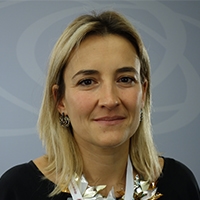
Maria Díez Campelo
Salamanca, Spain
Universidad de Salamanca
Maria Díez Campelo
After graduating from medical school in 1999, Prof. Díez Campelo started medical training in Hematology. Since 2005, she has been working at the Department of Hematology at the University Hospital of Salamanca, IBSAL in Spain. Between 2006 and 2009 she completed a 3-year postdoctoral fellowship provided by ISCII. From 2009 was responsible of the section of Morphology and Hematimetry in the Hematology Department and since 2017 Prof. Díez Campelo held a position of Associate Professor of Hematology at the University of Salamanca in Spain. Responsible of since 2016.
Since October 2016 Prof. Díez Csmpelo is heading the Myelodysplastic Syndromes team at the University Hospital in Salamanca.
Prof. Díez Campelo´s clinical expertise lies in hematological malignancies with a focus on MDS and AML. The main scientific interest involves the translational exploration of innovative treatment options for these patients. She is a member of the Spanish MDS group (GESMD) since 2009 and head of GESMD since 2018. She also is involved in the European Myelodysplastic Syndromes Cooperative Group (EMSCO).
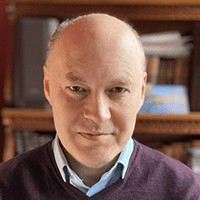
Alexander Drakesmith
Oxford, UK
University of Oxford
Alexander Drakesmith
Hal Drakesmith is Professor of Iron Biology at the MRC Human Immunology Unit in the MRC Weatherall Institute of Molecular Medicine, University of Oxford. Hal was trained at the University of Cambridge, University of Kyoto, and University College London before moving to Oxford. His laboratory works on the interaction of iron homeostasis with immunity, infection, anaemia, and inflammation, with a particular focus on the role of the iron regulatory hormone, hepcidin.
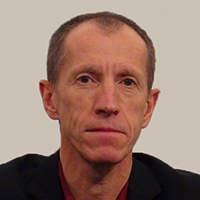
Pierre Fenaux
Paris, France
St-Louis Hospital
Pierre Fenaux
Pierre Fenaux trained at the University Hospital of Lille, France, where he became Professor in Hematology in 1993. Between 2002 and 2013 he founded and was head of the clinical hematology section at Hôpital Avicenne, Paris 13 University. He then moved to Hôpital St Louis, Paris 7 University to create a new clinical hematology section for myeloid disorders in the elderly, which he currently chairs. He is involved in clinical and laboratory research in the field of myelodysplastic syndromes (MDS) and acute myeloid leukemia (especially promyelocytic leukemia). He is a founding member and chairman of the French-speaking MDS group (Groupe Francophone des Myélodysplasies) and of the French APL group (GT-LAP). He is also a member of the board of directors of the MDS Foundation. He is the author of numerous scientific articles in peer-reviewed journals.
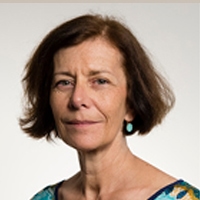
Michaela Fontenay
Paris, France
Institut Cochin – Université Paris Descartes
Michaela Fontenay
Michaëla Fontenay, MD, PhD, full professor in Hematology at Université de Paris.
Institut Cochin, INSERM U1016, CNRS UMR8104, Université de Paris
Assistance-Publique-Hôpitaux de Paris. Centre, Hôpital Cochin
Head manager of the laboratory of Hematology and of the Unit of clinical haemostasis of Cochin AP-HP.Centre University Hospital
Co-director of PhD school Hematology Oncogenesis Biotechnology, Université de Paris
Director of INSERM research team “Normal and pathological hematopoiesis” in the Department Development, reproduction, Cancer at Institut Cochin, Paris
Past member of INSERM scientific committee, ANR scientific committee
Invited conferences: European Hematology Association, European School of Hematology, MSKCC, US Red blood cell club, Gordon conference, Keystone symposium, Société Française d’Hématologie.
More than 140 publications in peer reviewed journals (Cell, Nature, Nat Medicine, Sci Transl Med, Blood, Leukemia, Haematologica)
Keywords: hematopoiesis, erythropoiesis, myelodysplastic syndrome, leukemia, microenvironment, innate immunity
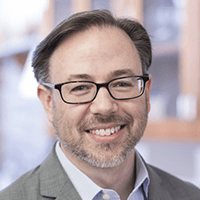
Jonathan Irish
Nashville, USA
Vanderbilt University
Jonathan Irish
Jonathan M. Irish, Ph.D., is Associate Professor of Cell & Developmental Biology at Vanderbilt University. His lab studies how signaling controls cell identity in healthy human tissues and in diseases, including cancer and immune disorders. His approach emphasizes combined use of bench and computational single cell techniques.
Dr. Irish trained at Stanford University with Dr. Garry Nolan and Dr. Ronald Levy for his PhD and postdoc, respectively. His PhD thesis work created a new single cell snapshot phospho-proteomics approach and applied it to stratify leukemia patient clinical risks. He developed the quantitative framework for phospho-flow and wrote the first lines of code for the Cytobank cloud computing platform. As a postdoc, Dr. Irish adapted single cell tools for lymphoma precision medicine and revealed a new negative prognostic lymphoma cell type defined by abnormal B cell signaling mechanisms. In his independent lab at Vanderbilt, Dr. Irish has focused on adapting the immunologist’s toolkit and single cell phospho-flow cytometry for human solid tissues and tumors, including melanoma, lung cancer, and brain cancer. In the last 5 years, his lab has focused on cancer and immune cell signaling interactions and creating machine learning tools to quantify cell identity.
Recent advances from Dr. Irish’s lab at Vanderbilt include:
- Machine learning tools for human immune monitoring & cancer (MEM algorithm: Nature Methods 2017 PMC5330853; T-REX algorithm: bioRxiv 2020 PMC7402038).
- Risk stratification of human glioblastoma based on single cell signaling and neural stem cell profiling (RAPID algorithm: eLife 2020 PMC7340505).
- Abnormal and clinically significant human T cells revealed across cancers: glioblastoma, renal cell carcinoma, and melanoma (Cancer Immunology Research 2019 PMC6318034).
- Stage-specific B cell CD40 signaling in primary human naïve, germinal center, and memory B cells (Cytometry 2019 PMC6711772).
- Single cell chemical biology discovery & characterization in primary patient tissue samples (Nature Communications 2018 PMC5750220).
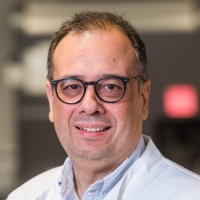
Shahram Kordasti
London, UK
King’s College London
Shahram Kordasti
Following graduation from medical school and clinical training in Internal Medicine/ Haematology, Dr Kordasti received his MSc in Medical Immunology and PhD in Cancer Immunology from King’s College London (KCL). He established the role of Tregs in MDS and their effects on disease progression and response to treatment. He continued his work at KCL and developed an interest in the immunobiology of aplastic anaemia (AA) during this time. He has been senior lecturer at King’s College London and honorary clinical haematologist at Guy’s Hospital since May 2018 and continues to study the immunobiology of Myeloid Malignancies. His main research interest is the plasticity of CD4+ T cells, their interaction with inflammatory microenvironment and their role in the immunobiology of myeloid malignancies. Computational biology, multidimensional cytometry as well as multiomics data integration for patient stratification is another focus of his research group. His clinical interests are AA, MDS and MPN.
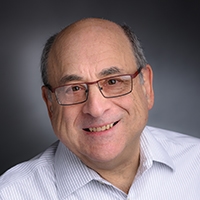
Stuart Orkin
Boston, USA
Harvard Medical School
and
Boston Children’s Hospital
Stuart Orkin
Dr. Stuart H Orkin is the David G. Nathan Distinguished Professor of Pediatrics at Harvard Medical School, and an HHMI Investigator at Boston Children’s Hospital. Orkin has defined the molecular basis of human blood disorders and mechanisms governing blood cell development. Previously he served as Chairman of the Department of Pediatric Oncology at the Dana Farber Cancer Institute from 2000-2016. He received a BS from MIT and an MD from Harvard Medical School. Dr. Orkin served on the National Research Council Committee on Mapping the Human Genome and as co-chair of the Panel to Assess the NIH Investment in Gene Therapy. He was the inaugural chair of the Grants Reviews Committee of the California Institute of Regenerative Medicine (CIRM).
He provided the first comprehensive molecular dissection of an inherited disorder (the thalassemia syndromes), and characterized genes responsible for other human blood disorders, including X-linked chronic granulomatous disease (the first positional cloning). Orkin identified the first hematopoietic transcription factors (the GATA family) and characterized their roles in blood cell development and cancer. His studies of BCL11A, a repressor of fetal hemoglobin (HbF), have illuminated regulation of globin gene switching and improved prospects for HbF reactivation as therapy of the thalassemias and sickle cell disease.
Dr. Orkin was elected to the National Academy of Sciences (NAS), National Academy of Medicine (NAM), American Academy of Arts and Sciences, and the American Philosophical Society, He received the E. Mead Johnson Award, Warren Alpert Prize, Helmut Horten Foundation Prize, Distinguished Research Award from the Association of American Medical Colleges (AAMC), E. Donnall Thomas, Dameshek and Basic Science Mentor Awards of the American Society of Hematology (ASH). He received Jessie Stevenson Kovalenko Medal of the NAS for “important contributions to the medical sciences”(2013), the William A. Allan Award of the American Society of Human Genetics (2014), the George M. Kober Medal of the American Association of Physicians (2018), the Mechthild Esser Nemmers Prize in Medical Science of Northwestern University (2018), King Faisal Prize in Medicine (2020), the Harrington Prize for Innovation in Medicine (2020), and the International Society for Stem Cell Research (ISSCR) Tobias Award Lecture (2021).
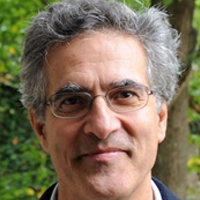
Antonio Piga
Turin, Italy
University of Turin
Antonio Piga
Antonio Piga is professor of Pediatrics at Torino University and President of the Ethics Committee San Luigi Gonzaga, Italy.
His main professional activity is clinical medicine applied to Hematology and Pediatrics, with a strong orientation to genetic diseases.
He developed the Reference Centre for Hemoglobinopathies of Piemonte region, Italy.
He acted as Dean of the School of Medicine at S. Luigi University Hospital.
Research activity focused on hemoglobinopathies, iron metabolism disorders, non-invasive methods of body iron quantification, drug development, especially iron chelators and erythropoiesis modulators.
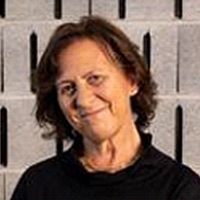
Graça Porto
Porto, Portugal
University of Porto
Garça Porto
Graça Porto graduated in Medicine in 1979 at the University of Porto (UP) and specialized in Hematology/Transfusion Medicine at the Porto University Hospital Center (CHUP), where she holds a permanent position, presently as Chief Consultant. Her clinical work has been mostly devoted to the study of disorders of iron metabolism, running the Hospital Outpatient Clinic for Hemochromatosis (H). In 1994 she got her PhD degree in Immunology at the Abel Salazar Institute for Biomedical Sciences (ICBAS) of UP with the study of the hematological and immunological aspects of H, and in 2004, also at ICBAS, the Habilitation degree in Physiopathology. Appointed as ICBAS faculty member, presently as invited Head Professor, she created and organized new teaching modules in Iron Biology, first in the UP graduate program in areas of basic and applied Biology (GABBA) and presently in the integrated master course in Medicine. In 2003 she joined, as clinical researcher, the Institute for Molecular and Cellular Biology (IBMC), Porto, and in 2011 created at i3S (Institute for Research and Innovation in Health) a translational research group on basic and clinical research in iron biology (BCRIB), focusing on the implications for iron related disorders. She is a member of the International BioIron Society since its foundation and an active member of the European Iron Club for more than 30 years. As a recognised clinical expert in the field, and responsible for the molecular diagnosis of iron related disorders at the Centre for Predictive and Preventive Genetics (CGPP/IBMC), she published, in 2015, the EMQN (European Molecular Quality Network) best practice guidelines for the molecular genetic diagnosis of H. In 2018 was appointed as coordinator for the Disorders of Iron Metabolism in the EuroBloodNet, the European Reference Network for rare haematological diseases, and presently integrates the expert group of EASL (European Association for the Study of the Liver) for revision of the Hemochromatosis Clinical Guidelines.
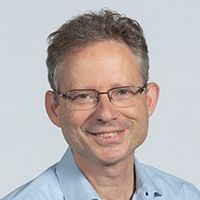
Marc H.G.P. Raaijmakers
Rotterdam, The Netherlands
Erasmus MC Cancer Institute
Marc H.G.P. Raaijmakers
Prof. dr. Marc H.G.P. Raaijmakers, MD, PhD, is a professor of Hematology in the Department of Hematology at the Erasmus MC Cancer Institute, Rotterdam, the Netherlands. He completed postdoctoral research at the Department of Stem Cell and Regenerative Biology at Harvard University and the Harvard Stem Cell Institute, revealing a concept of niche-induced oncogenesis in the hematopoietic system. He (co)-authored papers and comments in leading journals including Nature, Cell, Cell Stem Cell, J. Exp. Med, Blood and Leukemia, served in the editorial boards of leading journals in the field of Hematology and provided numerous invited lectures at international meetings. He chairs the expertise center on Bone Marrow Failure and Leukemia Predisposition at the ErasmusMC, the EHA scientific working group on Genetic Predisposition in Hematologic Cancer and is a board member of the HOVON Leukemia Working Group. His laboratory studies microenvironmental contributions to hematopoietic disease, with an emphasis on bone marrow failure and leukemogenesis. He received scholar awards from the Dutch Cancer Society, the Dutch Society of Hematology, the Dutch Ministry of Science and Innovation and the Leukemia & Lymphoma Society U.S.A. His clinical expertise is in bone marrow failure syndromes, MDS and acute myeloid leukemia.
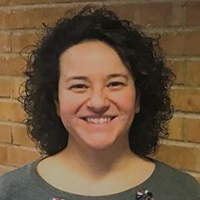
Roberta Russo
Naples, Italy
Università degli Studi di Napoli Federico II
Roberta Russo
Roberta Russo is a tenure-track assistant professor in Medical Genetics at University of Naples Federico II. Since 2006, her major interest was the study of genetics of rare hereditary anemias, with a focus on Congenital Dyserythropoietic Anemias (CDAs), mainly CDA type II. After the degree in medical Biotechnologies, she attended the postgraduate Residency school in Medical Genetics; subsequently, she gave the PhD in Genetics and Molecular Medicine. Currently, she is the principal investigator of a project aims to elucidate the genetic bases of patients with hereditary anemias.
mobile phone number: +39 3381010350
twitter account: Roberta Russo @Russola
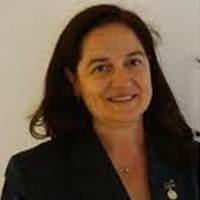
Valeria Santini
Florence, Italy
AOU-Careggi University Hospital
and
Università degli Studi di Firenze
Valeria Santini
Valeria Santini is Associate Professor of Hematology at the University of Florence, Italy. She received her medical degree from the University of Florence and became a Consultant in Haematology. She worked as fellow of the European Organisation for Research and Treatment of Cancer (EORTC) at Dr Daniel den Hoed Cancer Center/Erasmus University, Rotterdam, The Netherlands. She then undertook clinical training in the USA at the Leukemia Unit, M. D. Anderson Cancer Center, University of Texas, Houston.
Professor Santini runs the MDS Unit- Hematology- Department of Experimental and Clinical Medicine- AOU Careggi, University of Florence. Her interests are focused on clinical and translational research in MDS and elderly AML.
Professor Santini is President of the Fondazione Italiana per lo studio delle sindromi mielodisplastiche (FISiM) and Italian Network of MDS Registries, a member of the Medical Advisory Board of the Aplastic Anemia and Myelodysplastic syndromes -International Foundation (AA & MDS IF), and member of the board of GIMEMA MDS working party. She is one of the 3 KOL for MDS working group in the European Harmony 2020 research project. She is a member of the Scientific Committee of the European School of Hematology (ESH), member of the Education Committee of the Society of Hematological Oncology (SOHO) and member of the Executive Board of the Scientific Working Group on MDS of European Hematology Association (EHA). She has served for two terms on the executive board of the Italian Society of Haematology (SIE) and she has been Vice-president of the Italian Society of Experimental Haematology (SIES). She belongs to ASH, EHA and MDS Foundation. She is also an author of more than 200 peer-reviewed papers published in international journals, she is member of the Editorial board of Blood journal, and documented reviewer for high impact factor scientific journals. She has been an invited speaker at numerous international meetings including the American Society of Clinical Oncology (ASCO 2007: educational session on MDS), American Society of Hematology (ASH 2012, ASH 2016: educational sessions on MDS), European Haematology Association (EHA 2016, EHA 2020: Educational sessions on MDS) and national haematology societies of several countries.
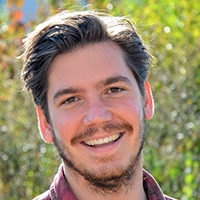
Jonas Schulte-Schrepping
Bonn, Germany
University of Bonn
Jonas Schulte-Schrepping
Jonas Schulte-Schrepping is a Ph.D. student in the laboratory of Joachim L. Schultze at the division for Systems Medicine, German Center for Neurodegenerative Diseases (DZNE), Bonn, and the department for Genomics & Immunoregulation at the Life & Medical Sciences (LIMES) Institute, University of Bonn. He received a B.Sc. and M.Sc. degree from the University of Bonn in Molecular Biomedicine and during his Ph.D. studies he currently works on the clinical application of single-cell transcriptomics in infections and inflammatory diseases.
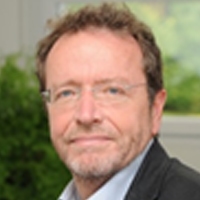
Eric Solary
Paris, France
Institut de Cancérologie Gustave Roussy
Eric Solary
Eric Solary is MD, full-Professor in Hematology at Paris-Saclay University, is teaching clinical and biological hematology as well as cell biology. He created a first Inserm Unit « Cell Death and Cancer » in 1999, which became the Inserm Research Centre “Lipids, Nutrition, Cancer” in 2007, and headed a doctoral school in life Sciences and two federative Institutes of Research. He was the Scientific Director of Gustave Roussy Cancer Center from 2011 to 2020 and presides over the Scientific Committee of Foundation ARC, a cancer research dedicated charity. His research has been dedicated initially to leukemic cell resistance to cytotoxic drugs, then to cell death mechanisms and the link between cell death and differentiation in the hematopoietic system. His current research is focused on monocyte differentiation and the pathogenesis of chronic myeloid malignancies, with a focus on chronic myelomonocytic leukemia.
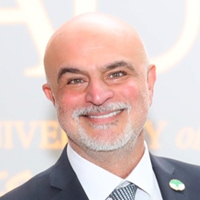
Ali Taher
Beirut, Libanon
American University of Beirut Medical Center
Ali Taher
Ali T. Taher, Professor of Medicine at the Division of Hematology & Oncology Department of Internal Medicine, is the Director of the Naef K. Basile Cancer Institute (NKBCI) at the American University of Beirut Medical Center (AUBMC. He has occupied the position of the Vice Chair for Research at the Department of Internal Medicine, AUBMC and was also the Founding Director Fellowship and Residents Research Program (FRRP), Faculty of Medicine. Nationally, Prof. Taher is an integral member of a team of consultants at the Thalassemia Department of the Chronic Care Center (CCC) located in Hazmieh, Lebanon where he has contributed to state of the art programs for prevention and management of thalassemia patients in the country. Internationally, Prof. Taher has also been an adjunct Professor of Hematology & Medical Oncology at Emory School of Medicine, Atlanta, GA, USA since 2013. In May 2018 Prof. Taher was granted Tenure in the current rank as full time professor in the Department of Internal Medicine, Faculty of Medicine at AUBMC. Most recently in November 2020, an international study produced a composite citation-based indicator and listed Prof. Taher among the world’s top 2 percent of scholars in his respective field.
Prof. Taher has received numerous awards for his contribution in research and in benign hematology including, Honorary Award – Lebanese Medical Students’ International Committee in 2003 through 2006, the Medal of Honor for Achievement from the Lebanese Order of Physicians in 2004, Honorary Award – King Faysal Specialist Hospital and Research Center in April 2004, the Souad Subah Award for Best Scientific Work in August 2005, Gold Medal from the Ministry of Health – Lebanon in November 2008, and a Gold Medal Award, AUB Alumni Association, Medical Chapter in April 2010. He was also selected to join the “Alpha Omega Alpha Honor Medical Society”. In 2013, Prof. Taher was recognized with the “International Leader in Thalassemia” award by the Sultan Bin Khalifa International Thalassemia Awards presented to a those that have contributed significant work in Thalassemia and Hemoglobinopathies and has achieved a measurable impact in improving patients’ quality of life. Prof. Taher was also awarded in 2016 a Research Excellence Award presented by the Lebanese National Council for Scientific Research.
Prof. Taher was granted in 2011 the “Fellowship of the Royal College of Physicians (FRCP)” in appreciation of his dedication to advancing knowledge and research, as well as being awarded in 2012 a “Doctor of Philosophy Degree (PhD)” from Leiden University Medical Center (LUMC) for his ground breaking work on thalassemia intermedia which unraveled morbidity behind the disease.
Prof. Taher has been invited to over 200 conferences both regionally and internationally as a keynote speaker, chairperson and moderator and has around 450 manuscripts published in leading peer-reviewed international journals (Citations 16,186; h-index 62). He is the principal investigator on key clinical trials evaluating the efficacy and safety of iron chelation therapy in transfusion dependent thalassemia (TDT) and non-transfusion dependent thalassemia (NTDT) along with new modalities of treatment. He also currently serves as a member of the Editorial Board of Haematologica, Expert Review of Hematology and Expert Opinion on Orphan Drugs. He has also been invited to be Guest Editor for a special issue of the journal Blood Reviews in 2012 and recently been invited to be the guest editor of a special 2018 issue on Thalassemia of Elsevier’s Hematology/Oncology Clinics of North America. He also serves as editor for several books and guidelines in Thalassemia and as a reviewer for several prestigious scholarly journals in Hematology. Prof. Taher has taken part of as principal investigator in several Phase 1, 2, 3 & 4 clinical trials (26 Completed, 5 Ongoing, 3 to be initiated). He currently ranks in the Top 100 of the world’s most productive authors in Hematology (in the past 10 years), Top 5 of the most published authors in the Arab world (2012 to present) and among the top in the world in publications on Thalassemia and Iron Chelation Therapy. Most recently, Dr. Taher rated top expert in Anemia, beta-Thalassemia, and Iron Overload according to Expertscape.
Prof. Taher has always set an example of how fruitful research partnerships can be, by participating in studies of large collaborative networks (“National Institutes of Health” (NIH), USA). He has also shown leadership in creating local and regional scientific interest groups and associations that promote partnerships in science. Such partnerships within the Middle East and with Italy in particular were a success story which yielded data that reshaped our understanding of NTDT. Such work had a major impact on establishing management guidelines by the “Thalassaemia International Federation” (TIF) for both regularly transfused and non-transfusion-dependent thalassemias, for which Prof. Taher served as an Editor.
Prof. Taher has been acting as a scientific advisor and consultant for the TIF to support all their global efforts to promote optimal care for thalassemia patients through working on clinical, awareness, and education initiatives. He is also an active member of some of the most prestigious Hematology societies in the world including the American Society of Hematology (ASH), European Hematology Association (EHA), The International Society on Thrombosis and Hemostasis (ISTH) and New York Academy of Sciences.
Prof. Taher continues to evaluate new treatment strategies and chelators to help achieve optimal control of iron overload in these patient populations. In recognition of the quality of his research and his dedication to find new treatments to improve the thalassemic patients’ quality of life, Prof. Taher’s research has received numerous grants. Prof. Taher’s ultimate passion is mentoring and sharing his knowledge with the young generation of physician scientists.

Mitchell Weiss
Memphis, USA
St. Jude Children’s Research Hospital
Mitchell Weiss
Dr. Weiss is currently the Arthur Nienhuis Endowed Chair in Hematology and Chairman of the Department of Hematology at at St. Jude Children’s Research Hospital. He is a physician-scientist who cares for pediatric patients with non-malignant blood diseases and performs related laboratory research on red blood cell development and gene expression. In the past few years, his laboratory has placed a greater emphasis on translational studies aimed at developing new treatments for sickle cell disease and b-thalassemia. His talk will review genome editing technologies and their applications for treating these disorders.
